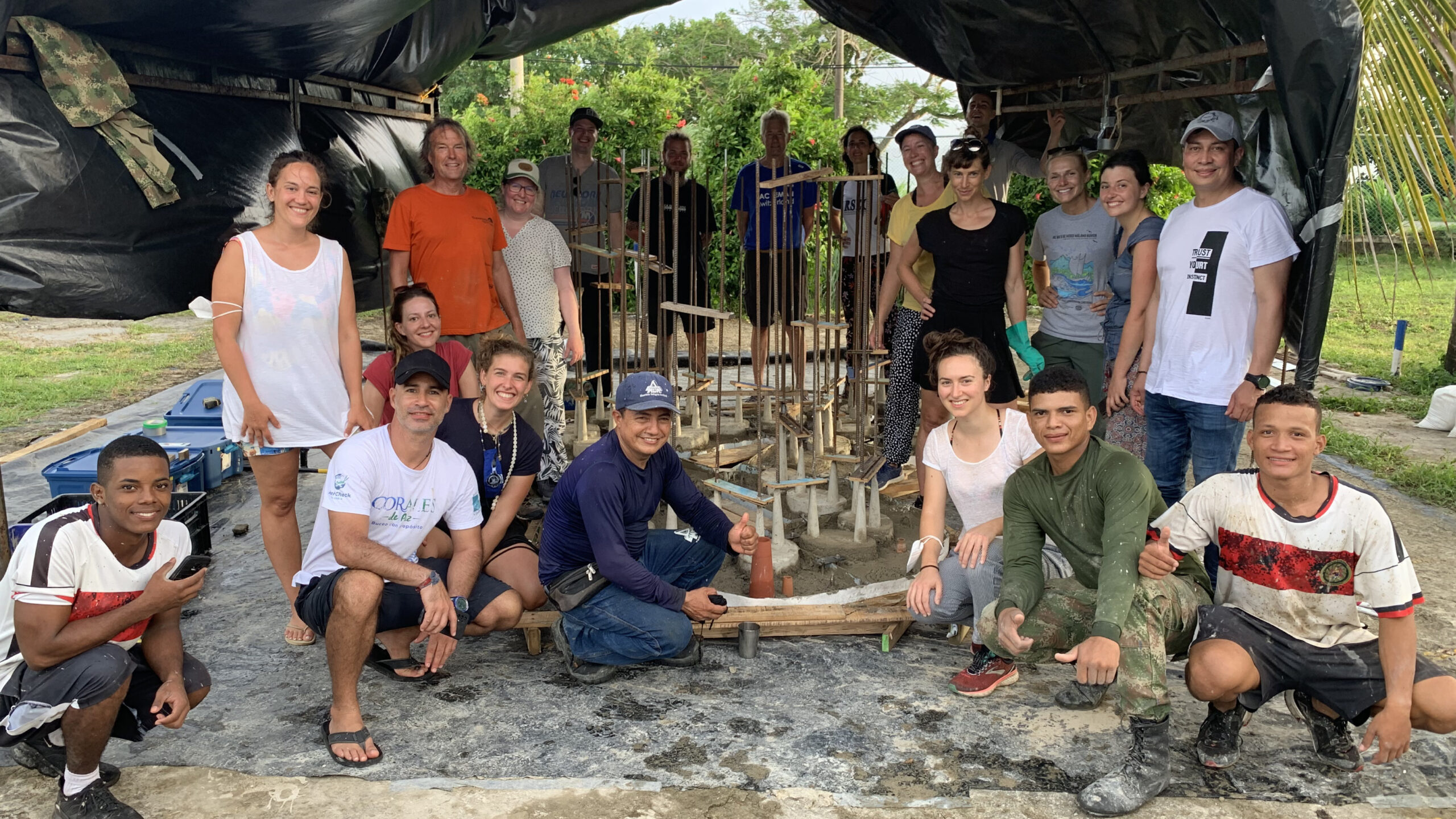Memories of the reef-building workshop
My memories of the reef-building workshop Living Shorelines: Green Engineering Methods for Coral Reef Rehabilitation in San Andrés, Colombia. Ten fun days packed with interesting lectures, inspiring people from around the world, hands-on scientific dives, and the construction of the first ever pilot reef with a 3D-printed brick system made from clay.
Hi, my name is Isabelle, I am Swiss, and I work in Human Resources in Mexico City. Since 2018 I have been studying Coastal Marine Ecosystem Management to learn more about my passion: the sea and the conservation of marine ecosystems, especially coral reefs and their inhabitants. Thanks to rrreefs and Corales de Paz, I was able to do fieldwork on a beautiful island in the Caribbean Sea and am now writing my thesis about the fusion of individual reef modules with coral microfragments.
More than a year ago I decided to contact Dr. Ulrike Pfreundt and Dr. Phanor H. Montoya-Maya as I first became interested in the problem of Stony Coral Tissue Loss Disease (SCTLD), which is causing substantial reef degradation in Quintana Roo, México (fortunately SCTLD has not yet reached Colombia). I learned about the valuable work of rrreefs and Corales de Paz and did not hesitate for a second to apply to the workshop when they announced their collaboration on a pilot project.
The Living Shorelines workshop took place from the 10th until the 20th of September 2021 on San Andrés, a Colombian island in the Seaflower Biosphere Reserve I had never heard of before. When I arrived at Villa Verde on the south-eastern part of the island with its beautiful pool, I felt comfortable right away. After a short introduction and meet and greet with the other workshop participants, the first lecture took place: ‘Reef Conservation: Rehabilitation Structures’. It was followed by many more lectures in upcoming days, touching on topics like reef ecology, methods for active restoration and physical processes in coral reef environments, just to name a few.
The ten workshop days were perfectly organized. The varied program included time for fun dives (14 logged dives in total), beach clean-ups, and meals/drinks on the beach. But of course the main goal was to deploy rrreefs’ 3D-printed “lego-like” brick system. During the first days, we were trained in scientific underwater methods such as underwater transport with lift bags, buoys, ropes, preparation of the landing area for the new reef, etc. Thereafter, we got the chance to visit a local coral nursery and help Blue Indigo Foundation clean coral fragments from algae overgrowth as well as to prepare the foundation for the new reef with the help of the Colombian navy. A big highlight was the installation of the foundation underwater, connecting and anchoring the different parts of it, followed by the intricately coordinated assembly of the bricks. During the last days, we also applied active reef restoration approaches like coral outplanting – fixing coral fragments onto the structure with a special cement.
It was intriguing to witness the importance of a comprehensive stakeholder management to lead such an effort to success. On the island of San Andrés, various actors came together in a collaborative partnership to make this project happen: the Ministry of Environment and Sustainable Development, the Colombian navy, CORALINA, CEMarin, marine biologists and divers, and even local artisanal fishermen.
Overall, the workshop exceeded all my expectations. It created multiple benefits: The self-sustaining eco-engineered reef system serves as a scientific study object, promotes the growth of a healthy reef ecosystem by providing the lost 3D framework of a natural reef. It fosters coral recruitment and creates habitat for countless other marine organisms. Furthermore, workshops like these help to raise awareness on the importance of coral reefs and measures needed to mitigate coral reef degradation (for instance by blending coral reef restoration and hurricane damage mitigation work around the island of San Andrés), and last but not least create an attraction for tourists and meaningful diving.
I would like to extend a big THANK YOU to the rrreefs team, Phanor and the Corales de Paz team, and all other #rrreefers for this incredibly well coordinated and fun workshop – teamwork at its best! We are now all proud holders of Corales de Paz’ “Reef Repair Diver” certificate.
Looking forward to the next workshop!
by Isabelle Seiler
